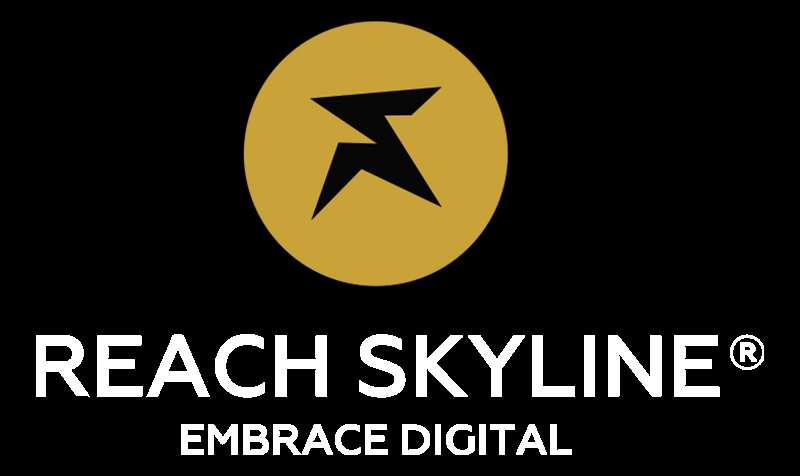Unprecedented speed of change in the digital terrain shapes companies’ interactions with customers. Using artificial intelligence to provide hyper-personalized experiences is among the most radical developments of late. This change has changed Online Marketing such that companies may customize interactions, recommendations and material depending on personal preferences. Businesses that use hyper-personalizing driven by artificial intelligence develop a competitive edge by strengthening bonds with their customers. Businesses have to use these developments to keep ahead in a market that is getting more dynamic as consumer expectations grow.
AI Changing Hyper-Personalization
By evaluating enormous volumes of data to forecast user behavior, artificial intelligence has transformed personalizing. Whereas artificial intelligence allows real-time, one-to-one interaction, traditional marketing techniques depended on wide segmentation. Combining machine learning techniques helps companies monitor social interactions, buying behavior and surfing patterns to create tailored marketing messages. This degree of personalization guarantees that users get pertinent information, hence raising engagement and conversion rates.
AI’s immediate data processing capability lets marketers modify campaigns depending on real-time input. Recommendation engines, predictive analytics and AI-driven chatbots enable companies to engage their consumers in significant engagements. Because of customized experiences, companies investing in AI-powered customization claim better consumer happiness and loyalty. AI will only grow more important as it develops, changing customer expectations and brand interactions and so influencing Online Marketing.
The capacity of AI-powered personalizing to improve consumer trips is among its most important features. Using behavioral insights helps companies to predict consumer requirements and provide tailored experiences at the correct moment. Dynamic content generated by artificial intelligence adjusts depending on user preferences, therefore maintaining the relevance of marketing initiatives. This change from generic advertising to tailored involvement enhances not only the efficacy of marketing but also long-term brand loyalty.
The Part Data Plays in Hyper-Personalization
Personalization driven by artificial intelligence is based on data, which helps companies to know customer preferences and behavior. Data points from social media, e-commerce and mobile apps provide more possibilities for marketers to build more customized experiences available. The quality and depth of data insights determine how effective Online Marketing is since they let AI systems improve targeted techniques.
The capacity of artificial intelligence-driven data analysis to expose latent trends in consumer behavior is among its main advantages. Through user interaction analysis, companies can find trends that might not be clear-cut from conventional statistics. This lets companies forecast tastes going forward and modify their marketing campaigns in line. AI systems will keep improving personalizing efforts as data collecting gets more complex by providing exact and fast recommendations.
As companies use artificial intelligence for personalization, data protection and compliance become absolutely vital. Companies are starting to change their policies as consumers grow more conscious of how their data is handled. Regulatory systems like GDPR and CCPA force companies to treat data ethically while still building customer confidence. Ethical data techniques help companies to reach personalization without sacrificing customer privacy.
Advantages of artificial intelligence-driven hyper personalization.
Companies using AI-driven personalizing techniques stand to gain greatly, so improving consumer interaction and marketing potency. Customized content made possible by artificial intelligence helps businesses to match personal tastes, hence improving conversion rates.
- Improved Customer Engagement: Customized recommendations and focused messaging boost user interaction and retention, hence enhancing customer engagement. Content that consumers find relevant will help brands establish strong relationships that inspire long-term loyalty.
- Improved marketing efficacy: AI automates decision-making, therefore freeing marketers to maximize campaigns with little work. Reducing manual categorization will help companies concentrate on strategic goals while artificial intelligence improves personalizing efforts.
The capacity of artificial intelligence to instantly evaluate consumer preferences and sentiment provides companies with a benefit in changing their plans. Companies that welcome hyper personalization learn things that enhance consumer experiences and product offers. More significant interactions produced by this strategy help to build closer brand-consumer ties.
Difficulties and Considerations in Personalization Driven by AI
Although personalization driven by artificial intelligence has benefits, companies have to deal with certain difficulties.
- Juggling Personalism with Privacy: While artificial intelligence helps companies develop customized experiences, too much data collecting could cause customer anxiety. Maintaining ethical standards in Online marketing, companies must make sure that efforts at personalizing do not feel invasive.
- Relevance of Data Accuracy: The quality of the data utilized for analysis determines how accurate artificial intelligence-driven personalizing is. Outdated or inaccurate data can result in useless recommendations, therefore lessening the success of marketing initiatives. Data validation procedures help companies to guarantee that artificial intelligence systems run with consistent findings. Maintaining accuracy and relevance in personalizing efforts depends on constant monitoring and improvement of artificial intelligence algorithms.
- Compatibility with Current Techniques: Technical complexity and limited resources make many companies find it difficult to implement AI-driven personalizing. Successful application depends on funding the correct AI tools and training people to properly apply these technologies. Early adaptable companies will have a competitive edge in the changing field of Online marketing as artificial intelligence develops.
The Future
Offering brands the capacity to interact with consumers on a deeper level, artificial intelligence-powered hyper-personalization is changing the direction of Online marketing. Data-driven insights and real-time analytics let companies design customized experiences that improve engagement and loyalty. Companies that embrace ethical and strategic personalizing techniques will flourish in the digital world even if issues including data protection and AI integration still exist. Personalization is a basic feature of effective brand strategies since artificial intelligence technology keeps developing and influences marketing only more and more. Accepting these developments will not only propel corporate expansion but also result in more significant relationships between companies and their consumers.


